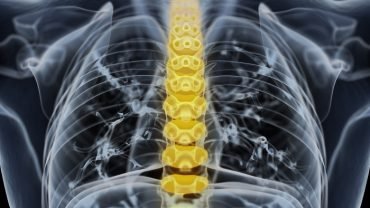10 Science-Backed Benefits of Vitamin B5 (Pantothenic Acid)
The benefits to your health from pantothenic acid are numerous.
Did you know that it is beneficial in treating stress and depression, allergies, hair loss, and asthma?
It is essential to both humans and animals, and its deficiency can lead to serious problems.
Read on to learn what pantothenic acid is, and everything else you need to know about it.
What is Vitamin B5?
Many people want to know, what is pantothenic acid?
The answer is simple. It is vitamin B5, a water-soluble vitamin that is found in all living cells in the body.
It is also found in plants.
Some of its sources include legumes, meat, eggs, milk, vegetables, and cereal grains.
It plays a vital role in the breakdown of carbohydrates, fats, and proteins to provide energy for your cells.
This vitamin is needed for the production of red blood cells, stress-related hormones, steroids, and neurotransmitters.
Without it, maintaining a healthy digestive tract and proper production of optimal levels of vitamin B2 will not be as effective as it should be.
The synthesis of cholesterol in our bodies is dependent on vitamin B5.
It is used even in the production of cholesterol itself, and is for this reason that studies have been conducted to determine whether the derivative of vitamin B5, pantethine, can be used to lower the levels of blood cholesterol in the body.
Over time, vitamin B5 is lost in some foods, particularly those that are stored for a long period like fruit juice.
During several food processes like canning, cooking, milling, and roasting, the acid is lost.
Similarly, the acid is also sensitive to food additives like some forms of alkali, baking soda, and vinegar.
Although it doesn’t lead to a complete loss, cooking for a long time exaggerates the effect further.
This is why you should cook your foods briefly.
Pantothenic acid deficiency can lead to unpleasant health issues like hair loss or graying, fatigue, acne, depression, and increased risk of infection.
A too-high dosage of vitamin B5 will lead to diarrhea, nausea, and tooth sensitivity.
Most of the time, however, an excess of vitamin B5 is associated with more of an excess of what is known as vitamin B complex.
Signs of Vitamin B5 Deficiency
Vitamin B5 deficiency is very rare, as it is found in many types of foods.
In fact, the name pantothenic acid is derived from a Greek word ‘pantos,’ which means everywhere.
However, pantothenic acid deficiency may occur in people who are malnourished, pregnant women, those who use oral contraceptive pills, alcoholics, smokers, and individuals with high levels of stress.
When it does, the following are the symptoms:
- Lack of Energy – Vitamin B5 aids in food metabolism. It is pivotal in the breaking down of carbohydrates, fats, and proteins, as mentioned earlier. By doing so, your body is supplied with sufficient energy necessary for its day-to-day activities. An increased metabolic rate helps you shed weight faster, which is why if you are looking to lose or maintain your weight, adequate vitamin B5 is mandatory.
- Blemished Skin or Acne – Your skin issues could have a number of causes, like hormonal imbalances and improper washing, but vitamin B5 also has a role in the appearance of your skin. It helps maintain a balanced skin and prevents the potential breakout of acne. A sudden worsening of your skin could be as a result of a deficiency in vitamin B5. But it is important to check with your dermatologist to determine whether supplementing the vitamin can be helpful.
- Edgy Nerves – Vitamin B5 also regulates your nervous system. You could be suffering from a deficiency if you are constantly feeling that your nerves are getting the better of you, or that you are persistently stressed out. It is also possible that your stress levels have other causes, but lack of vitamin B5 is a possible one.
- Muscle Cramps – Vitamin B5 is needed for the synthesis of acetylcholine, which is important in muscle contractions. Its deficiency can cause numbness and muscle cramps, as well as a tingling sensation in the muscles, making them very uncomfortable.
- There are other intestinal symptoms like diarrhea, water retention, and vomiting, among others.
- Sleep disturbances, irritability, and restlessness – These are symptoms of falling blood sugar levels. They also indicate a deficiency in vitamin B5. The reason is that the vitamin contributes to sugar metabolism. A deficiency causes the tissue cells to become extra sensitive to blood sugar levels. This causes a drop, eventually resulting in hypoglycemia.
- Other first signs of the vitamin’s deficiency include burning sensations on your feet and in the hands. Numbness and poor coordination are other symptoms that should cause you to worry about a possible vitamin B5 deficiency.
The treatment of a vitamin B5 deficiency includes the use of oral vitamin B5.
This is the simplest treatment method.
Also, increasing the amount of vitamin B5-rich foods in your diet ensures that you receive sufficient amounts.
Health Benefits of Vitamin B5
Maintains Healthy Skin
Skin health can be maintained in a number of ways, both on the outside and in the inside.
Vitamin B5 is widely used to remove excess acne, especially because the world of cosmetics has increasingly adopted it.
It is used in spas, and beauty salons, where the raw materials of turmeric and coconut water are included in the facial treatment.
Additionally, papaya fruit, which is rich in vitamin B5, contributes to the natural treatment of the skin.
All this is possible because of the chance that acne is caused by the pantothenic acid deficiency (1).
Vitamin B5 will keep your skin healthy, and also delay the appearance of early signs of premature aging such as wrinkles and age spots.
Using the right soaps or other products with vitamin B complex, which contains vitamin B5, can help you maintain healthier skin.
Vitamin B5 benefits also extend to healing wounds.
The calcium pantothenate accelerates the process of wound healing.
This was shown in studies involving test tubes and animal experiments.
It repairs the skin faster, and in most cases, was effective in subjects recovering from surgery (2).
Other pantothenic acid benefits for your skin involve its moisturizing effect that helps in maintaining perfect and healthy skin.
Healthy Heart
Vitamin B5 is known to help keep the heart healthy.
It has an impressive record of ensuring that the level of cholesterol and blood pressure are appropriate.
Through the conversion of fats and carbohydrates into glucose, vitamin B5 lowers and balances the levels of cholesterol in our bodies.
Consequently, it lowers high blood pressure and prevents heart attacks (3).
In a study that involved a triple-blinded placebo and diet-controlled investigation, it was found that pantethine, a derivative of vitamin B5, favorably alters total, low-density lipoprotein (LDL), and HDL (high-density lipoprotein) cholesterol in participants with low to moderate cardiovascular risk (4).
Vitamin B5 was also shown, according to one clinical report, to be effective in the treatment of dilated cardiomyopathy (a disease affecting the heart muscle) in a young boy.
When significant doses of vitamin B5 were introduced, there was a sustained improvement in growth and myocardial function (5).
Further studies show that vitamin B5 drugs – calciipantothenas and pantethine – are effective in the treatment of patients with coronary heart disease and stable angina effort (6).
These, among others, are reasons why vitamin B5 is good in ensuring that one maintains a healthy heart.
Improves Hair Growth
Vitamin B5 benefits also include making sure that one has an improved and healthy growth of hair.
With the vitamin alone, you can effectively fight or prevent premature aging of the hair, also known as graying.
It helps you fight pigmentation loss, ensuring that your hair color is not lost until you are well into your golden years.
Vitamin B5 stimulates growth, allowing your hair to grow at a faster rate than usual.
This statement is true according to a double-blind placebo-controlled clinical trial studying pantothenic acid.
It was found that pantothenic acid was more effective than a placebo in improving the quality of hair, and promoting retarded hair loss (7).
In another study that involved panthenol with caffeine, niacinamide, Dimethicone, and acrylate polymer (CNPDA), there was proof that it substantially increased the diameter of hair strands and decreased the shear modulus.
In other words, there was increased pliability, as well as the ability to withstand certain amounts of force, while remaining intact without breaking (8).
Eating foods rich in vitamin B5 such as beef, chicken, eggs, legumes, avocado, nuts, and potatoes, you can avoid B5 deficiency and aid in hair growth.
Boosts Metabolism
Vitamin B5 aids in metabolism, and boosts bodily function.
It plays a vital role in ensuring that the body is supplied with enough energy to fuel its functions.
It is a precursor to coenzymes, whose function is to ensure that what we eat is converted into energy.
As a result, the vitamin allows one’s body to have an accelerated metabolism.
This is done through the breakdown of lipids and carbohydrates into energy.
The coenzyme-A (CoA) breaks down sugars into glucose for energy.
With vitamin B5, essential lipids and neurotransmitters are properly synthesized and utilized for maintaining a functioning, healthy body.
One of the requirements for the production of red blood cells is calcium pantothenate.
It is also needed in the production of sex hormones, and steroid hormones (9).
This vitamin promotes the effective carrying of oxygen throughout the body, keeping you energized even during exercise.
Vitamin B5 is also crucial if you are looking to maintain a healthy digestive tract.
And the implementation of other enzymes relies on this vitamin.
Vitamin B5 is particularly suitable for those who are on a diet and looking to shed some pounds.
And, because it plays an important role in nutrient usage and digestion, digestive problems can be a symptom of a deficiency of vitamin B5.
Regularly eating foods rich in vitamin B5 will help you maintain a balanced metabolism.
Helps Fight Respiratory Problems
There have been several studies conducted to show the relationship between respiratory problems and vitamin B5.
In one clinical study on an adolescent boy who had a history of asthma, Dexpanthenol was utilized to determine its effect on the illness.
The findings proved to be remarkable.
There were improvements in the boy’s condition, and it was also deduced that vitamin B5 can be used to treat future episodes of asthma (10).
In the study, it was found that when vitamin B5 is used together with certain types of drug cocktails, it helps in relieving nasal congestion, rhinorrhea, and the common cold only minutes after use.
Rhinorrhea is a respiratory condition which is characterized by a nasal cavity filled with mucus.
This was established in a case study of a 40-year old male with a cold history of a one-day nasal congestion, as well as rhinorrhea.
He was given an infusion of 1 ml of the vitamin, along with the other components of Myer’s cocktail.
It was found that a dose of vitamin B5 was appropriate for relieving the problem.
The vitamin is also known to reduce effectively the symptoms of allergic rhinitis, which includes nasal congestion.
Along with other vitamins and minerals, vitamin B5 fights asthmatic bronchitis (11, 12), infection of the upper respiratory airways, and seasonal allergic rhinitis, as well as chronic sinusitis.
Promotes Liver Function
Healthy liver function includes the synthesis of different types of proteins, cholesterol, and glucose from glycerol, lactate, and proteins.
It is also involved in the production of bile, a yellowish fluid used by the body to emulsify fats and transport them to the various parts of the body via the bloodstream.
The liver detoxifies and breaks down ingested drugs, which undergo a purification process in the kidney to become urine.
The liver also stores several other nutrients like A, D, and B12, copper, and iron, as well as glucose.
It only releases them when the body runs low.
Because vitamin B5 is used to synthesize coenzyme-A, liver function is enhanced.
CoA is a key enzyme in the liver, and it is highly essential in the elimination of toxic and harmful substances from the body.
High amounts of CoA in the liver ensure that the organ functions at optimal performance.
The study conducted to arrive at this conclusion, i.e. that high levels of CoA enhance liver function and fight off toxins (14), shows just how important vitamin B5 is to our bodies.
If you want to maintain a healthy body, free of disease or infection, the solution is to consume lots of food with vitamin B5.
Reduction of Stress
Sometimes, you may be stressed for an unknown reason.
Increased stress levels may not only cause sleepless nights but other serious health problems.
It is also one of the symptoms of a deficiency in vitamin B5.
Eating foods with an adequate supply of vitamin B5, on the other hand, will enable you to cope with this unpleasant condition.
In fact, the body couldn’t survive without vitamin B5 and other vitamins that ensure hormone regulation.
This is because the vitamins help in maintaining and sustaining proper adrenal function.
This is one of the reasons why people who have chronic stress levels, as well as those who experience adrenal fatigue symptoms, are recommended to take vitamin supplements.
B vitamins, including pantothenic acid, are highly effective in calming the nervous system.
As a result, they are equally effective in battling chronic stress, in addition to regulating the hormones that control appetite, mood, temperature, energy, and much more.
Vitamin B5 partially regulates the adrenal functions and creates the stress hormone cortisol.
The supplementation of vitamin B5 triggers the stimulation of the adrenal cells, which produce cortisol.
Although the hormone has a bad reputation for causing anxiety and weight gain, among other issues, it plays an important role in concentration and energy.
This is why it is necessary to maintain proper levels.
Anti-Inflammatory Properties and Eye Pain
As already mentioned, pantothenic acid and CoA are needed by the adrenal glands to produce the cortisol hormone.
This hormone is essential for its anti-inflammatory properties, which helps in the natural treatment of swelling.
This is why most eye drops use vitamin B5, in another form known as dexpanthenol, to aid in the reduction of inflammation and pain in dry eyes (13).
It promotes a good feeling and relieves the pain, allowing you to feel better and much more comfortable.
In the case of eye infections exclusively, vitamin B5 alone cannot achieve much.
The healing occurs as a result of the vitamin B complex, which is always incorporated into any supplements you may take.
This addition of the vitamin B complex helps in the optimization of the use of vitamin A, which flows via the blood to the eye.
The eyes, as a result, continue to receive a steady supply of vitamin A, which is good for maintaining their health.
Better still, vitamin B5 makes biochemical synthesis processes in the body occur optimally.
It is, therefore, essential that if you want to improve the health of your eyes, you should ensure that there is no deficiency of this vitamin.
Boosts the Immune System
One of the vitamins that improve the immune system is vitamin B5.
The immune system helps the body in fighting various types of infections as well as diseases.
Eating foods rich in vitamin B5 is crucial for ensuring that the body doesn’t contract infections or catch something dangerous.
Getting enough vitamin B5 makes it possible for your white blood cell count to be maximized for better immunity.
Vitamin B5 ensures that your body creates the antibodies that defend against potential threats.
These threats include environmental or allergic responses.
Viruses, the common cold or flu, toxins, bacteria, and parasites are other harmful invaders for which your body needs these antibodies.
Studies show that this vitamin results in a reduction in the proliferation of unwanted organisms in your body, particularly parasites.
Further, findings show that it inhibits dangerous bacterial growth.
For instance, vitamin B5 reduces the infection of malaria, which is caused by a dangerous parasite (14).
The body must produce enough antibodies for you to stay healthy.
Persistent stress levels cause the body to be vulnerable to invasion and toxins.
This is because the body is depleted of energy as it tries to concentrate on handling threats that seem to be immediate.
Because your stress levels are somewhat controlled by vitamin B5, the body’s immunity is kept optimal.
This guarantees that there will be a decreased chance of sickness and becoming run-down.
Improved Mental Performance
In general, B vitamins are associated with the improvement of mental function.
They can reduce risks of many problems associated with mental performance.
Such issues include illnesses, or even age-related memory and function loss.
If you obtain adequate amounts of vitamin B5 in addition to other types of B vitamins, they can be part of the solution for preventing the loss of memory, insomnia, migraine headaches, depression, motion sickness, chronic brain syndrome, and even dependence on alcohol.
Vitamin B5 is well known to regulate the body’s hormones, which gives it the ability to reduce stress, depression, and anxiety.
Vitamin B is also responsible for ensuring that body fatigue is decreased.
The main reason is that it balances hormones related to fatigue or alertness, and generally boosts the body’s metabolism.
People who are chronically stressed often have a deficiency of vitamin B5, as noted by some physicians.
A deficiency in vitamin B5 causes one to lose the ability to react to stress effectively. Symptoms of adrenal fatigue also appear.
When this occurs, one will have trouble sleeping and exercising, and may experience mood swings, or weight gain or loss, among other symptoms related to stress.
Boosting your metabolism to reduce stress levels is the best thing you could ever do.
This you can do by eating foods rich in vitamin B5.
You will feel much better and have restful nights.
Best Vitamin B5 Foods
The simplest way of ensuring the maximum benefit from pantothenic acid is through food.
Many kinds of food contain vitamin B5 so that it is almost impossible for one to be deficient.
If you are serious about regulating the cholesterol levels in your body, increasing your metabolism, alleviating stress, and improving your mental health, among other things, you should include milk, eggs, legumes, cereals, vegetables, and meat in your diet.
Here are other types of food sources that contain high amounts of vitamin B5:
- Mushrooms – These are naturally occurring foods that deliver high concentrations of vitamin B5, in addition to other nutritional value, to your plate. Some varieties of mushrooms provide 3.59 mg, or a daily value (DV) of 36 percent. White mushrooms have 34 percent DV and oyster mushrooms 11 percent DV. Since most mushrooms grow in the wild, you should exercise caution while picking them.
- Eggs – a single cooked egg can supply you with about 0.70 mg, which amounts to 7 percent DV of vitamin B5. The best way of ensuring that you enjoy substantial amounts of the vitamin is to have your eggs boiled or scrambled for breakfast.
- Beef and Beef Cuts – These two are good sources of vitamin B5. Only one piece of cooked veal provides about 29 percent DV of vitamin B5. Other types of beef cuts necessary for increased intake of the vitamin include rib of veal, lean beef steak, veal sirloin, and calf liver.
- Oily Fish – Apart from its rich fatty acids, oily fish is also a good source of vitamin B5. Trout is the best. In a serving of 100 g, you get 2.24 mg, or 22 percent DV, of the vitamin. Other oily fish that contains high levels of vitamin B5 include tuna and wild and farmed salmon.
- Turkey and Chicken – These two sources of protein are rich in vitamin B5. A chicken drumstick contains 0.55 mg or 6 percent DV. A turkey leg has about 10 percent DV, while a chicken leg and thigh contain 11 percent DV. These two are versatile foods and can be used for delicious meals as well as burgers and sandwiches.
- Avocados – Only a single avocado contains 1.99 mg, or 20 percent DV, of vitamin B5. This is why it is a healthy fruit. However, you should ensure that you eat it in moderation, as it is high in calories.
Other types of food that contain significant amounts of vitamin B5 include cheese, sweet potatoes, lean pork, sunflower seeds, caviar, liver, baker’s yeast, royal jelly, broccoli, nuts, lentils, and more.
Vitamin B5 Precautions
Vitamin B5 has some side effects, especially when it interacts with medications.
You should, therefore, exercise caution while taking dietary supplements.
It is important to do this under the supervision of a healthcare provider.
The following information is also helpful for extra precaution.
Vitamin B5 Risks
High levels of vitamin B5, or an overdose, has several effects.
There is no tolerable upper limit for vitamin B5.
Toxicity is low, and it has not been established that an overdose can cause death.
Ingesting high doses of vitamin B5 leads to digestive and gastrointestinal problems.
Taking more than the recommended dosage leads to diarrhea.
It is also speculated that it causes heartburn and nausea.
Some individuals may also experience dehydration caused by diarrhea.
In other cases, swelling and joint problems occur.
This is because excessive vitamin B5 leads to edema, or water retention, as well as swelling of the tissues.
This often appears in the ankles, the face, and the wrists, although the inflammation may happen anywhere in the body.
Because the vitamin is also responsible for metabolism, high doses may lead to an elevation in blood triglycerides, which could result in calcification of the arteries and blood vessels.
Also, depression is another risk associated with too much vitamin B5.
Vitamin B5 Dosing
According to the U.S Food and Nutrition Board of the National Academy of Science’s Institute of Medicine, the daily adequate dose (AI) of vitamin B5 should be 5 mg for both men and women.
The correct dosage of daily AI for women who are pregnant should be 6 mg, and 7 mg for those who are breastfeeding.
The right dosage for children includes 2 mg a day for those who are between 1 and 3 years, 3 mg for 4-8-year olds, and 4 mg for those who are 9 to 13 years old.
These dosage instructions are only to be taken through dietary sources.
If the recommended requirements cannot be achieved through diet, supplements can be taken at about 5 to 10 mg per day.
This is a high dosage, considering the difference in the bioavailability of vitamin B5 through supplements and the diet.
Vitamin B5 Interactions
Consumed in the appropriate amount, vitamin B5 is safe.
This is why it is recommended that you stick to the prescribed amount because, in excess, you will experience some or most of the above-discussed vitamin B5 overdose side effects.
Overconsumption can also result in bleeding risks.
If you are pregnant or lactating, you shouldn’t exceed the 6 mg daily dosage.
What you should also keep away from is dexpanthenol, which is used for patients with gastrointestinal blockage and hemophilia.
Consumption may reduce clotting.
It is also known that vitamin B5 may lead to increased effects of a group of drugs known as cholinesterase inhibitors, which are usually used for the treatment of Alzheimer’s disease.
Taking them will only worsen the side effects; as a result, you should take them under the supervision of your physician.
The vitamin also interferes somewhat with the effectiveness and absorption of tetracycline.
You should take them at different times, especially when you are completing a prescription.
All the vitamin B complex supplements have this same effect on antibiotics.
It is, therefore, important that you take them at different intervals.
FDA Compliance
The information on this website has not been evaluated by the Food & Drug Administration or any other medical body. We do not aim to diagnose, treat, cure or prevent any illness or disease. Information is shared for educational purposes only. You must consult your doctor before acting on any content on this website, especially if you are pregnant, nursing, taking medication, or have a medical condition.
HOW WOULD YOU RATE THIS ARTICLE?






